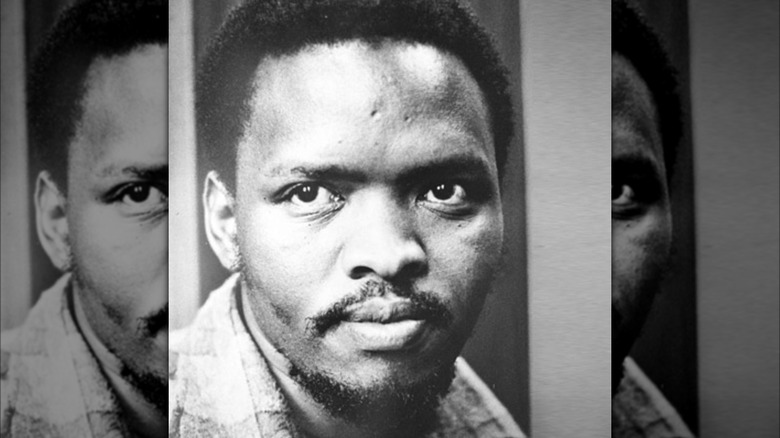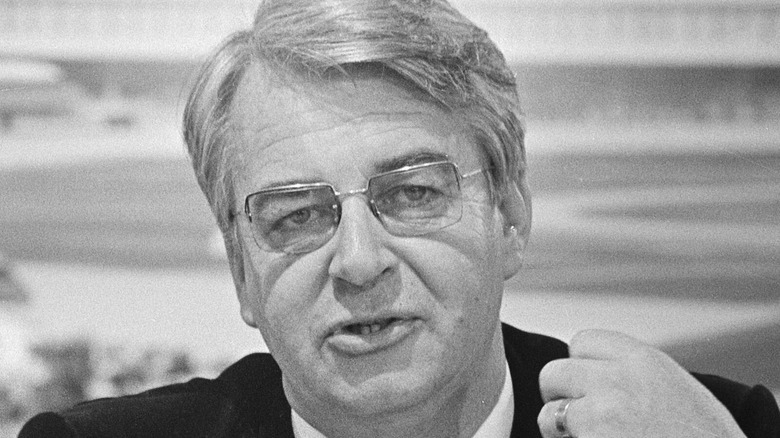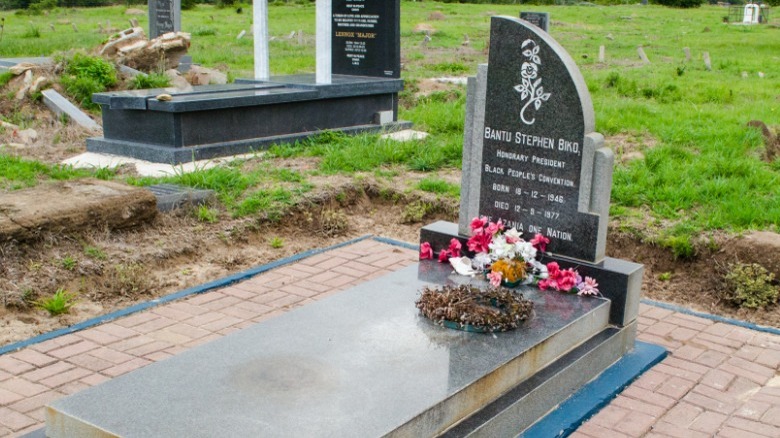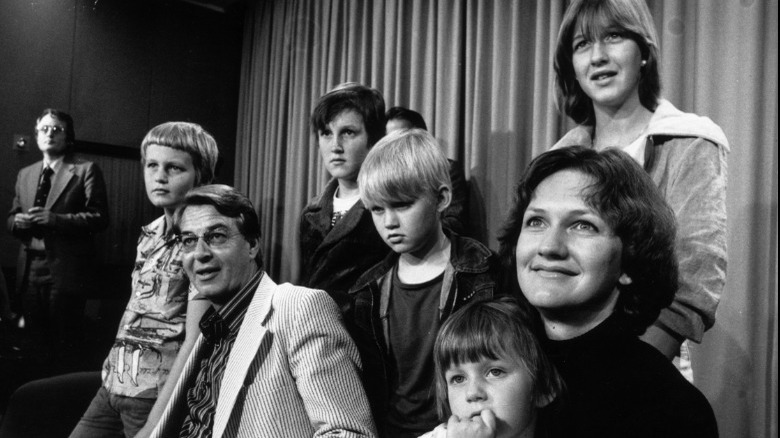Inside The Friendship Of Activist Stephen Biko And Journalist Donald Woods
Journalist Donald Woods first encountered anti-Apartheid activist Stephen Biko professionally in 1973, as Woods later explained on the National Public Radio program "Fresh Air." As the two got to know each other, they developed a deep friendship. Each of them had campaigned against the racially segregated policies of the South African government in their own way before they met.
Born on December 18, 1946, Stephen Biko knew firsthand the racial injustices suffered by Blacks in South Africa, and he began his political activism as a teenager (via Britannica). Kicked out of one school for acting on his beliefs, he went on to study at the University of Natal Medical School. There Biko helped establish the South African Students' Organization (SASO), an all-Black group, after being part of the National Union of South African Students (NUSAS), per South African History Online. In NUSAS, Biko felt like the voices of white liberals were crowding out the voices of Blacks. With SASO, he championed Black self-esteem and identity and called for Blacks to find their own solution to Apartheid rather than have white liberals determine the best way forward.
Woods and Biko had political differences at first
It might seem unlikely to some that Stephen Biko would form a friendship with a white liberal like Donald Woods, especially one who didn't fully support Biko's ideas when they first met, per "Fresh Air." Born in 1933 in South Africa's Eastern Cape area, Woods, though he was white, spent his early years with local Black children (via The New York Times). He learned their tribal language known as Xhosa, but he supported Apartheid growing up. During his time in law school, Woods realized just how unfair and unjust this type of racial segregation was. He later became a journalist for the East London Daily Dispatch, and it was as a reporter that he was able to shine a light on his country's problematic political system, per The Guardian.
Woods first met up with Biko at his home. As a leader of the Black Consciousness Movement, he had been confined to his home by the authorities. Woods visited him there, and that encounter was life-changing for the journalist. As Woods explained on "Fresh Air," "I used to attack him [Biko] and his movement in my newspaper because I considered them too radical." But through their conversations, Woods realized that he had misunderstood Biko, and he came to realize that Biko's driving point was that "Blacks had to acquire the psychological liberation from apartheid and to assume the leadership of their own liberation." Woods and Biko developed a friendship after this conversation, and Woods tried to help white South Africans to better understand Biko's ideas through his newspaper articles.
They both sought to end Apartheid
For his newspaper, Donald Woods wrote about how the practice of Apartheid should be ended completely and that a new form of government needed to be created, one that was led by the country's Black majority (via "Fresh Air"). He received numerous threats over his critical writing about the government, according to The New York Times. Biko continued to work for political change as well, and he paid a personal price for it. Over the years, Biko was arrested and imprisoned without trial several times for his activism (via Britannica). He once told Woods that if he died in police custody, Woods should not believe authorities if they claimed that he killed himself or died on a hunger strike.
Woods later remembered this conversation after Biko's last arrest in 1977. He and another activist were taken into custody on August 18, per Britannica. While in jail, Biko was severely beaten. He left outside of a Pretoria hospital on September 11, and he died the following day of a brain hemorrhage. The authorities first tried to claim that Biko died from being on a hunger strike, but Woods quickly sought to find out the truth about his friend's death.
Woods revealed the truth about Biko's death
After Stephen Biko's death, Donald Woods worked tirelessly to uncover what happened to his friend. Someone provided him with a medical report on Biko, which revealed the numerous injuries he suffered, including the damage done to his skull that led to his death (via "Fresh Air"). Woods published this information and sent the report — along with graphic images of Biko's body — to other press outlets and to government officials from other countries.
In response to his actions, Woods experienced the wrath of his government, which banned him from writing and put him in a form of house arrest. He secretly worked on a book about his murdered friend, fulfilling a promise he made to Biko. The deal was "if he got killed, I'd raise as much hell as possible," Woods told "Fresh Air." He eventually took his manuscript and fled the country. He and his family (shown above) went into exile in England, per The Guardian. He published his biography of Biko and traveled the world giving hundreds of talks and lectures on his friend and on Apartheid in South Africa.
Woods' book became the source material for the 1987 film "Cry Freedom" starring Kevin Kline and Denzel Washington. Millions of people across the globe watched Biko's story and his friendship with Woods unfold on the big screen. Washington received an Academy Award nomination for his portrayal of Biko.



